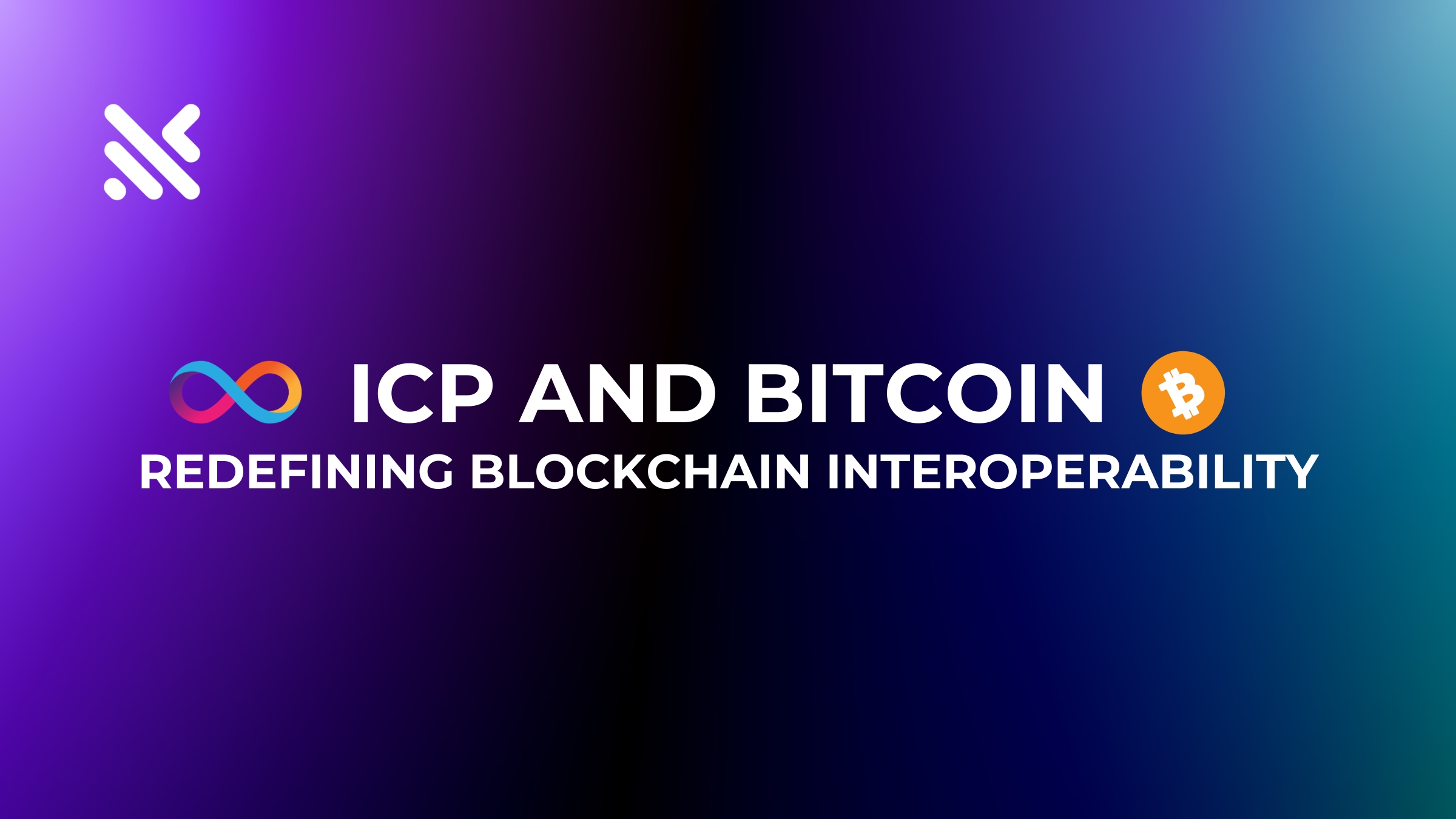
Unchained: How ICP and Bitcoin Are Redefine Blockchain Interoperability
The integration between Bitcoin and the Internet Computer Protocol (ICP) marks a transformative moment in blockchain technology. By enabling direct, trustless interaction between the world’s first cryptocurrency and a next-generation decentralized compute platform, ICP is unlocking new possibilities for decentralized finance (DeFi), application development, and digital asset management. Here’s a deep dive into how this relationship works, why it matters, and what it means for the future of Web3.
The Vision: Why Integrate Bitcoin and ICP?
Bitcoin, despite its unrivaled security and global adoption, was never designed to support smart contracts or advanced programmability. ICP, on the other hand, is engineered to host complex applications, smart contracts (called canisters), and even AI models directly on-chain. By fusing these two ecosystems, developers can leverage Bitcoin’s liquidity and trust while harnessing ICP’s programmability and speed. This integration eliminates the need for risky bridges or wrapped tokens, bringing true decentralization to cross-chain interactions.
How Direct Bitcoin Integration Works
ICP’s integration with Bitcoin is not a superficial bridge or a custodial workaround. It operates at the protocol level, meaning ICP nodes can fetch and validate Bitcoin blocks, maintain a full copy of the Bitcoin UTXO set, and expose this data to smart contracts. These canisters can:
Create native Bitcoin addresses
Read Bitcoin balances and UTXOs
Sign and submit real Bitcoin transactions
This is achieved through a combination of Bitcoin adapters (ICP nodes that act as Bitcoin peers) and chain-key cryptography, which allows canisters to securely hold and use Bitcoin private keys in a decentralized way.
Chain-Key Cryptography: The Secret Sauce
The breakthrough enabling this integration is ICP’s chain-key cryptography, specifically threshold ECDSA and Schnorr signatures. Instead of storing a private key in a single location, ICP distributes key shares across many nodes. When a Bitcoin transaction needs to be signed, the nodes collaborate to produce a valid signature, and this is achieved without any single node ever knowing the full key. This process ensures unparalleled security, as there is no single point of failure or attack. Furthermore, it maintains decentralization by removing the need for custodians or intermediaries. Finally, it provides speed, offering near-instant signing and transaction finality within ICP.
ckBTC: Bitcoin’s Fast Twin on ICP
To address Bitcoin’s slow transaction times and high fees, ICP introduces ckBTC-a chain-key Bitcoin token backed 1:1 by real BTC. ckBTC can be transferred instantly and at minimal cost within the ICP ecosystem, and always redeemed for real Bitcoin. This unlocks new use cases:
Lightning-fast DeFi protocols using real Bitcoin liquidity
Social and e-commerce apps with seamless BTC payments
Decentralized exchanges and NFT platforms with Bitcoin support
Real-World Impact and Future Potential
The direct integration of Bitcoin and ICP is already powering innovative dApps-from crowdfunding platforms that accept BTC, to social networks and online shops. Developers can now build applications that utilize Bitcoin’s security and value, while benefiting from ICP’s low fees, scalability, and full-stack decentralization. Looking ahead, this model sets the stage for even broader interoperability, as ICP’s Chain Fusion technology extends to Ethereum and other blockchains, making seamless multi-chain experiences a reality.
In summary: The relationship between Bitcoin and ICP is not just a technical integration-it’s a paradigm shift. By merging Bitcoin’s trust with ICP’s programmability, the blockchain world is moving closer to a truly decentralized, interoperable future.

